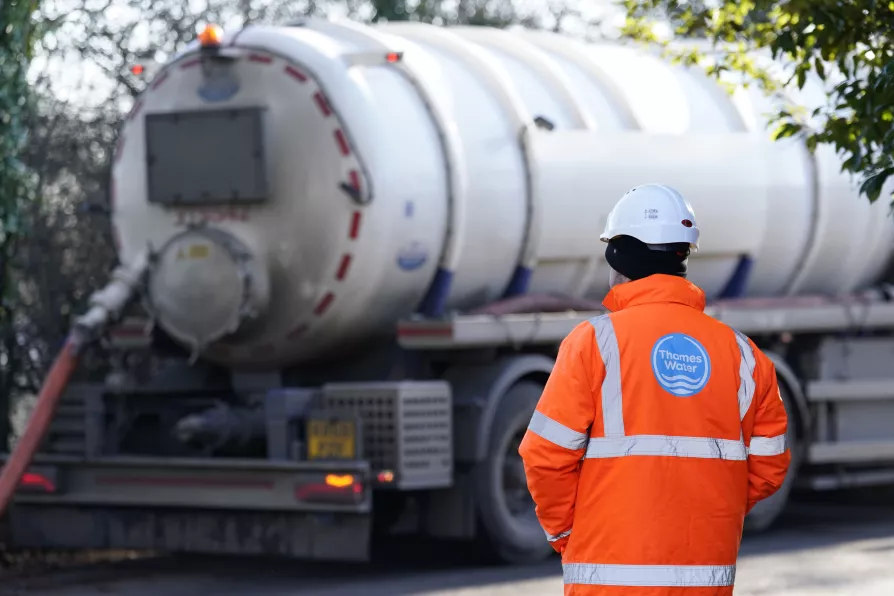
 A tanker pumps out excess sewage from the Lightlands Lane sewage pumping station in Cookham, Berskhire, January 10, 2024
A tanker pumps out excess sewage from the Lightlands Lane sewage pumping station in Cookham, Berskhire, January 10, 2024
BRITAIN’S largest water supplier is hoping to impose a 44 per cent price increase for its 16 million customers to help fill the financial hole created by years of underinvestment and high dividend payments.
The increase, which would see average bills rise to £627 a year by 2030, is part of Thames Water’s new business plan, which it has submitted to regulator Ofwat.
GMB national officer Gary Carter said: “It’s not for hard-up billpayers to dig Thames out of the financial mess they’ve created.
“The shareholders who trousered millions since privatisation must fork out to give the company a chance to turn things round.
“You can’t expect customers to pay £627 a year to pay for the past failures of Thames Water.
“Previous owners have taken the profits in huge dividends rather than putting in the investment needed.”
The utility giant has had to rethink its original business plan, published in October, in a bid to stave off collapse as it crumbles under the weight of £15 billion of debt.
Its investors have refused to pump in the cash needed to plug a funding gap that has affected vital upgrade works.
There are reports suggesting that the government is working on contingencies to effectively nationalise the water giant, which would see the taxpayer foot the bill for its mammoth debts.
The troubled firm has now proposed increasing spending by £1.1bn alongside a potential £1.9bn investment in its network as part of new business plans for the five years to 2030.
It said the proposals would see overall spending rise to £19.8bn, which would require bills to rise by 44 per cent over the five years.
Thames Water chief executive Chris Weston said: “Our business plan focuses on our customers’ priorities.
“As part of the usual ongoing discussions relating to [the business plan], we’ve now updated it to deliver more projects that will benefit the environment.”
Ofwat is due to give its initial decision on the proposed business plan, known as PR24, on June 12.
Thames Water said the updated business plans come after it had discussed the original business plan “extensively with regulators and key stakeholders,” including the Department for Environment, Food and Rural Affairs (Defra) and the Environment Agency.
A Defra spokesman said: “Customers cannot be expected to pay the price for Thames Water’s poor performance, which is why Ofwat should use their full powers to protect customers and ensure value for money in their bills.”
Unite call for employment changes after hospital worker forced to return to work after miscarriage















